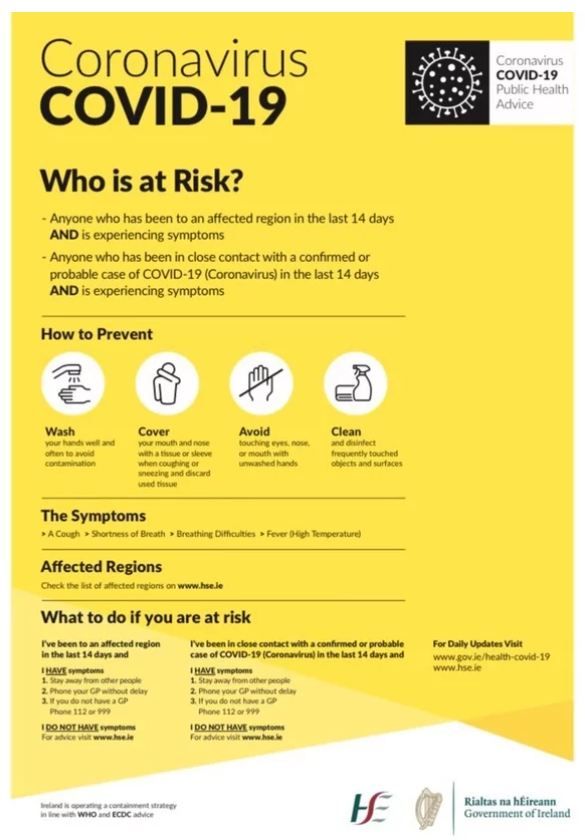Civil servants who contract the Covid-19 virus, or who are advised to ‘self-isolate’ by a medical practitioner, are to receive basic pay including fixed allowances from day one. 
And coronavirus-related sick leave will not be counted as part of the employee’s sick leave record, so long as they have medical or HSE confirmation of the need to self-isolate.
The measures are set out in Department of Public Expenditure and Reform (DPER) guidance, which issued at the end of last week on foot of discussions with Fórsa and other unions.
Civil service departments and agencies are implementing measures to help contain the spread of the virus, with some considering the use of remote working where it’s possible. A number of departments are enabling remote IT facilities for their staff.
Civil service contingency plans may also involve the movement of staff to cover essential needs, or the centralisation of work in particular locations if offices are closed because a staff member contracts the virus or there’s a need for self-isolation.
Meanwhile, the union is in talks to ensure that appropriate protective and containment measures are in place for front-line staff in areas like social welfare, agriculture, border management, and revenue operations at airports and ferry ports.
In social welfare, Fórsa is seeking the re-instatement of protective glass screens in public-facing counters, in line with advice given by the UK Health and Safety Executive. The union has also sought an end to the physical process of signing for social welfare payments.
More broadly, the Government has agreed to improved basic sick pay provisions for workers who are affected by the coronavirus, but who don’t have the protection of a union-negotiated agreement. They will receive higher levels of sick pay from their first day of illness.
This came after the Irish Congress of Trade Unions (ICTU) intervened, saying that limited sick pay provision was unfair to workers who lacked the protection of a union, and also increased health risk by acting as a disincentive to self-isolation.
In response, the Government agreed to increase basic sick pay provisions and waive conditions like the requirement to have a specific number of PRSI contributions. Payments will also be available to the self-employed.
While some – mainly private sector – employers have made arrangements for staff to work at home, official advice has so far fallen short of recommending the cancellation of large gatherings. That may well change in the coming days.
Read the DPER guidelines HERE.